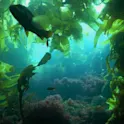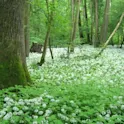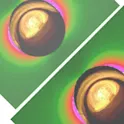1,071 news posts

Featured news
15 May 2019
‘Technoference’: We’re more tired and less productive because of our phones
A QUT study finds problematic phone use is getting worse in Australia; Frontiers in Psychiatry

Featured news
14 May 2019
Highly-qualified staff at state preschools overcome private sector staffing advantage
UK study reveals that staff to child ratios and more importantly, staff qualifications and in-service training, can predict the quality of preschool childcare settings; Frontiers in Education

Featured news
13 May 2019
Can stress in the womb lead to mental resilience later in life?
When a mother is exposed to intimate partner violence during pregnancy, her children are less likely to suffer depression and PTSD symptoms if they live in violent communities, than otherwise; Frontiers in Genetics

Featured news
29 Apr 2019
The unbeatable lightness of being
Is fostering our innate capacity for levity the ultimate antidote to stress and unhappiness? Frontiers in Psychology

Featured news
25 Apr 2019
Gender-biased protein may play role in autism
A study suggests that autism-related brain proteins are more tightly regulated in females than in males; Frontiers in Cellular Neuroscience

Featured news
24 Apr 2019
Germ-fighting catheter coating may help prevent infections
For the first time researchers have incorporated auranofin — an antibiotic with low resistance potential — into a coating for intravascular catheters; Frontiers in Cellular and Infection Microbiology

Featured news
18 Apr 2019
Scientists clarify what probiotics are and what they are not
Frontiers in Microbiology: A new scientific paper calls for strict adherence to the scientific definition, ensuring improper use of the term doesn’t mislead consumers or limit advancements in the emerging field of microbiome science

Featured news
16 Apr 2019
Honey, I ate the kids: the sweet side of filial cannibalism
Why do some animals eat or abandon their offspring? According to researchers at the University of Tennessee and the University of Oxford, these might actually be forms of parental care; Frontiers in Ecology and Evolution

Featured news
11 Apr 2019
Urban biodiversity to reduce chronic disease
‘Rewilding’ the urban environment with native microbes could restore the human microbiome and reduce our risk of chronic disease; Frontiers in Microbiology

Featured news
10 Apr 2019
Underwater forests a treasure trove of new drugs
Scientists recover dozens of antimicrobial and anticancer compounds from seaweed; Frontiers in Microbiology

Featured news
09 Apr 2019
Stressed? Take a 20-minute nature pill
Just 20 minutes of contact with nature will lower stress hormone levels, reveals new study; Frontiers in Psychology

Environment
08 Apr 2019
Floodplain forests under threat
A floodplain forest dominated by oaks. Credit: Albert Reif. — by University of Freiberg, Germany A team from the Institute of Forest Sciences at the University of Freiburg shows that the extraction of groundwater for industry and households is increasingly damaging floodplain forests in Europe given the increasing intensity and length of drought periods in the summer. The scientists have published their results in the journal Frontiers in Forests and Global Change. Floodplain forests dominated by oaks are among the most at risk in Europe. Through conversion to arable land and pastures, as well as settlements, they have lost most of their original distribution. River regulation and drainage have also changed the natural hydrologic balance. The introduction of pests and diseases decimates native tree species such as elm and ash. At the same time, these forests play an important part in the control of flooding and protection of biodiversity. Groundwater Extraction in Floodplain Forests Reduces Radial Growth and Increases Summer Drought Sensitivity of Pedunculate Oak Trees (Quercus robur L.)► Read original article► Download original article (pdf) The root of the study by the Freiburg team was the observation that the vitality of old trees in the oak forests of the Rhine valley had […]

Featured news
03 Apr 2019
Love Island: Flamboyant males get the girls on Madagascar
In two new species of rare giant stick insects, males turn livid blue or multicolored at sexual maturity; Frontiers in Ecology and Evolution

Featured news
02 Apr 2019
Quantum physics and origami for the ultimate get-well card
Scientists have combined the simplicity of paper with the complexity of quantum physics for point-of-care testing in low-resource environments; Frontiers in Bioengineering and Biotechnology

Featured news
01 Apr 2019
More scrutiny needed for less-deadly foodborne bacteria
Foodborne pathogens in the Bacillus cereus group cause diarrhea and vomiting. Credit: Penn State. — by Penn State University, USA Employing advanced genetic-tracing techniques and sharing the data produced in real time could limit the spread of bacteria — Bacillus cereus — which cause foodborne illness, according to researchers who implemented whole-genome sequencing of a pathogen-outbreak investigation. “Here, in our study, we use this approach for the first time on Bacillus cereus,” said Jasna Kovac, assistant professor of food science, Penn State. “It is our hope that whole-genome sequencing of Bacillus will be done more often as a result of our research, as it allows us to differentiate between the various species of Bacillus cereus group and project the food-safety risk associated with them.” Characterization of Emetic and Diarrheal Bacillus cereusStrains From a 2016 Foodborne Outbreak Using Whole-Genome Sequencing: Addressing the Microbiological, Epidemiological, and Bioinformatic Challenges► Read original article► Download original article (pdf) Done in response to an outbreak of foodborne illness in upstate New York in 2016, the project marked the first time researchers conducted whole-genome sequencing to investigate a Bacillus cereus outbreak to link isolates from human clinical cases to food. The outbreak, which lasted less than a month, stemmed from contaminated refried beans served by a small Mexican […]